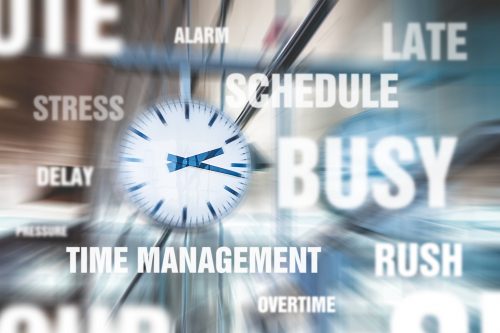
Procrastination, or the act of delaying something that must be done, can become a seriously distressing illness that can cause frustration and dissatisfaction in someone’s life, which may lead to more harmful effects on the quality of one’s relationships. From the Latin word meaning ‘until tomorrow,’ this presents as an evasion of work that must be accomplished or the act of delaying tactics. People become procrastinators because some have not been trained or have not trained themselves at doing and completing easy as well as difficult tasks at hand.
If you are not sure whether or not you are a procrastinator, here are some questions to ask yourself:
- Do you consistently delay the time-start of an activity that you need to do?
- Do you get easily sidetracked when friends call to invite you for dinner or a snack, and you agree even if you know you need to catch up with a deadline?
- Are you the type who needs inspiration or somebody to push you to begin an assignment?
- Do you take too much time contemplating acting on a task only to realize that you’ve made very little accomplishment?
Causes Of Procrastination
“Everyone handles positive and negative stress differently. And yes, for some, positive stress can lead to a negative response to stress, depending on the situation.” Jessica Harris, LCPC, LPC emphasizes. But don’t get me wrong – everybody procrastinates at some point in their lives. However, not everyone stays in that situation. Others are capable of temporarily picking up themselves after a difficult task and learning to cope amidst stressful circumstance.

Procrastination is in itself not an illness, but it can be a comorbid trait in some mental health problems.
- A typical effect of depression is reduced self-esteem, which is often associated with procrastination. People who are unsure of themselves and their capacity to accomplish tasks have a higher likelihood of not being able to begin a task right away. “If you are struggling with low self-esteem, it is encouraged that you seek some type of help and support to work through this issue, and to help you be the best version of yourself that you can be.” Dr. Nikki Martinez, Psy.D. said.
- Attention Deficit Hyperactivity Disorder causes individuals to have a severe problem with managing and organizing his time, which may lead him to procrastinate. When the ADHD accompanies bipolar disorder, the procrastination also worsens.
- When one is often anxious, she tends to be more focused on the fear of failure rather than accomplishing a job or an assignment. Also, procrastination can be a form of coping mechanism, particularly when one is anxious and in a mood swing at the same time.
Longstanding procrastination ultimately leads to problems in relationships, school and work issues, and chronic stress.
Consequences Of Procrastination

Studies have linked procrastination with high degrees of stress and lower degrees of wellness physically, mentally, and emotionally. Ways in which chronic procrastination affects an individual are:
- Financial constraints
- Decreased performance at work or in school
- Exercise and other healthy habits are sacrificed
Procrastinators are usually aware of their self-defeating behavior, and they would like very much to overcome it, but sadly it is not very easy for them to do. They may need to delve deep into their emotional and mental well-being before deciding to try to change their ways.
Getting Rid Of Procrastination
For someone who wants to be productive and successful, it can be really annoying to keep postponing relevant tasks and not being able to control when to stop. For those dealing with chronic procrastination, it is important to find out the primary cause of your behavior. Below is a list of some popular strategies to help overcome and avoid procrastination:
- Address The Trigger. Sometimes, when the task or project lacks structure or has no relevance to you, it may cause you to delay doing it some other time. Find a way to connect the task to your real-life experiences and make it more enjoyable to do.
- Believe In Yourself. Studies have found that those who came to terms with their procrastination in the past have a higher chance of avoiding the habit in the future. “Give yourself permission to do some serious emotional healing to become your happiest self and remember, it is a process more than a destination.” A reminder from Roya R. Rad, MA, PsyD.
- Be Content With Small Beginnings. Getting started may not be easy to do for some people, but for others starting small is one of the most exciting things that they look forward to. If you need to enroll in school, the best initial step is getting all the forms and start filling them out.
- Talk To A Therapist. If you are concerned about your procrastination issue and you want so much to overcome this issue, getting help from a therapist is one of the best moves you can make. You can actually talk with him about anything that may be disturbing, frustrating, or stressing you out. Be open and ready to be guided by the therapist. Let him help you become better, if not the best, productive person you can be.